'Bring us his head': Chilling $100m threat at assassinated leader's funeral
Iran has condemned Donald Trump labelling him a "terrorist in a suit" after the US president threatened to hit 52 Iranian sites, as a conflict between the US and Iran escalated dramatically over the weekend.
In a series of social media posts Monday morning (AEST), president Trump said the US would attack “perhaps in a disproportionate manner” if Tehran hit American assets in retaliation for the killing of military commander Qassem Soleimani.
Soleimani, Iran's pre-eminent military commander, was killed on Friday in a US drone strike on his convoy at Baghdad airport, an attack that took long-running hostilities between Washington and Tehran into uncharted territory and raised the spectre of wider conflict in the Middle East.
At a televised funeral for Soleimani, watched by millions, the eulogist put a $US80 million ($A115 million) bounty on the head of the US president.
“We are 80 million Iranians, if each one of us puts aside one American dollar, we will have 80 million American dollars, and we will reward anyone who brings us [Trump]’s head with that amount,” he said, addressing a large crowd in Iran’s north-eastern city of Mashha, according to Saudi free-to-air network Al Arabiya.
Following the killing, Iran’s Supreme Leader Ayatollah Ali Khamenei vowed “severe revenge” against the US.
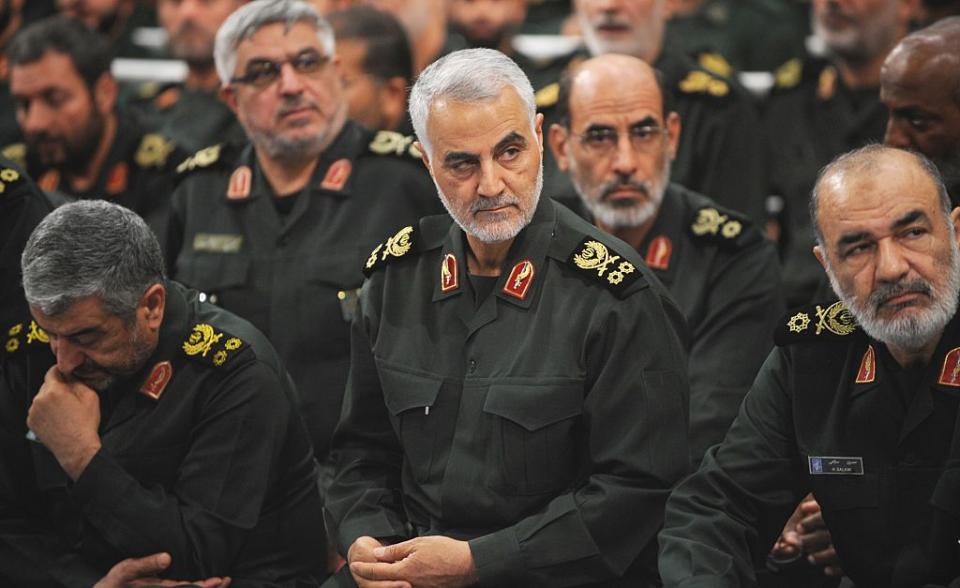
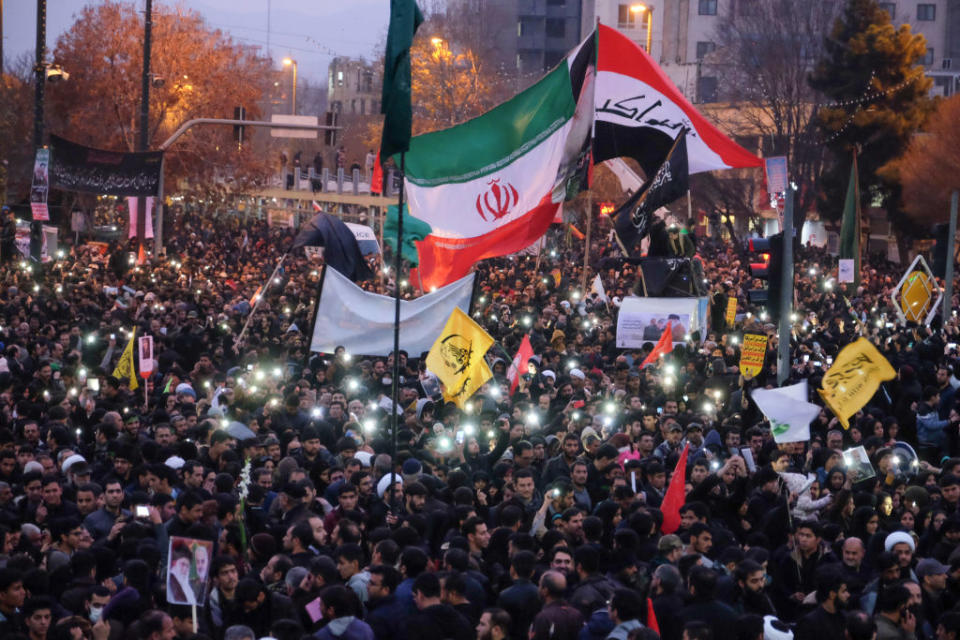
Iran steps further back from nuclear deal
Tensions are set to rise over Iran’s potential to build nuclear weapons as it backs further away from a 2015 deal struck with the Obama administration to limit the amount of uranium it can enrich.
It was Trump's withdrawal of the United States from the deal in 2018 and reimposition of sanctions on Iran that touched off a new spiral of tensions after a brief thaw following the agreement.
The deal as a whole was designed to increase the time Iran would need to obtain enough fissile material for a nuclear bomb, if it wanted one.
John Blaxland, a professor of International Security and Intelligence Studies at the ANU, says the world must brace for Iran’s pursuit of nuclear weapons.
“There’s some compelling national security imperatives in Iran to proceed down that path,” he told Yahoo News Australia. “I think it’s only reasonable that we assume that’s where they’re heading and they’re not far off.
“While Iran has played it relatively cool over the last year or so, I think the bottom line is that they are not feeling secure enough without it.”
The obtainment of such weapons would likely be more about gaining leverage, rather than a genuine intent to deploy them.
“You look at North Korea, and you see the enormous leverage that it gains from having nuclear weapons,” Prof Blaxland said.
“The best way to respond (the killing of Soleimani) is to proceed with its nuclear weapons program as surreptitiously as it can.”
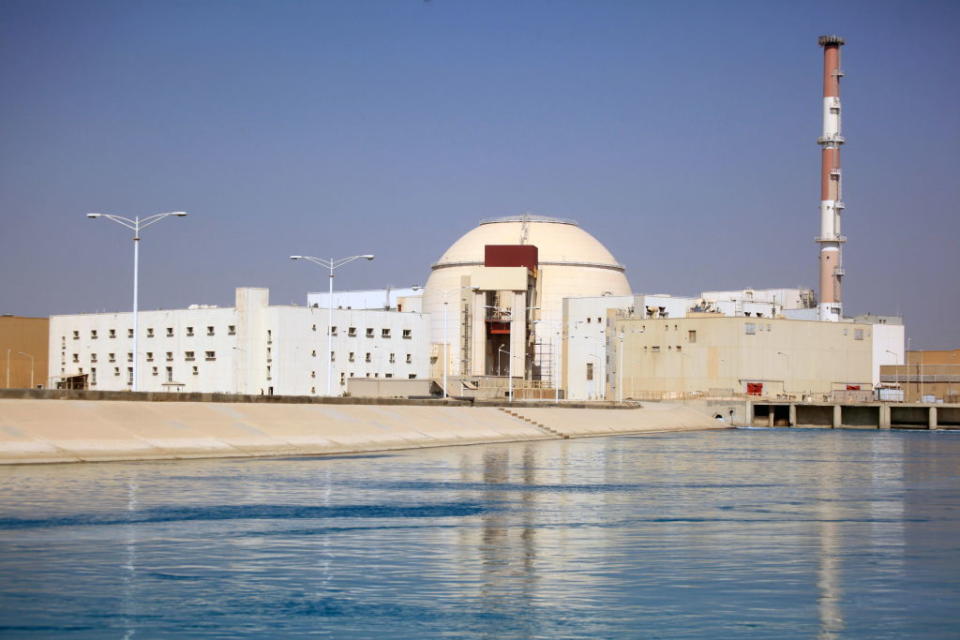
Iranian state television cited a government statement on Sunday as saying Iran would not respect any limits set down in the pact on the number of uranium enrichment centrifuges it could use.
Iran insisted that it remains open to negotiations with European partners over its nuclear program and did not back off from earlier promises that it wouldn’t seek a nuclear weapon.
However the announcement represents the clearest nuclear proliferation threat yet made by Iran since Trump unilaterally withdrew from the pact and it further raises regional tensions, as Iran’s longtime foe Israel has promised never to allow Iran to produce an atomic bomb.
While it does not possess uranium enriched to weapons-grade levels of 90 per cent, any push forward narrows the estimated one-year “breakout time” needed for it to have enough material to build a nuclear weapon.
While recent breaches of the deal made by Iran made little difference to that so-called break-out time, a growing number of advanced centrifuges are coming online, which could have a more significant impact if Iran pursues nuclear weapons.
Ultimately, Prof Blaxland doesn’t see major escalations playing out, but believes Iran and its allies will continue to seek “irritants” against the US through small attacks and proxy wars.
“Both the US and Iran retain vey strong imperatives to avoid escalation,” he said.
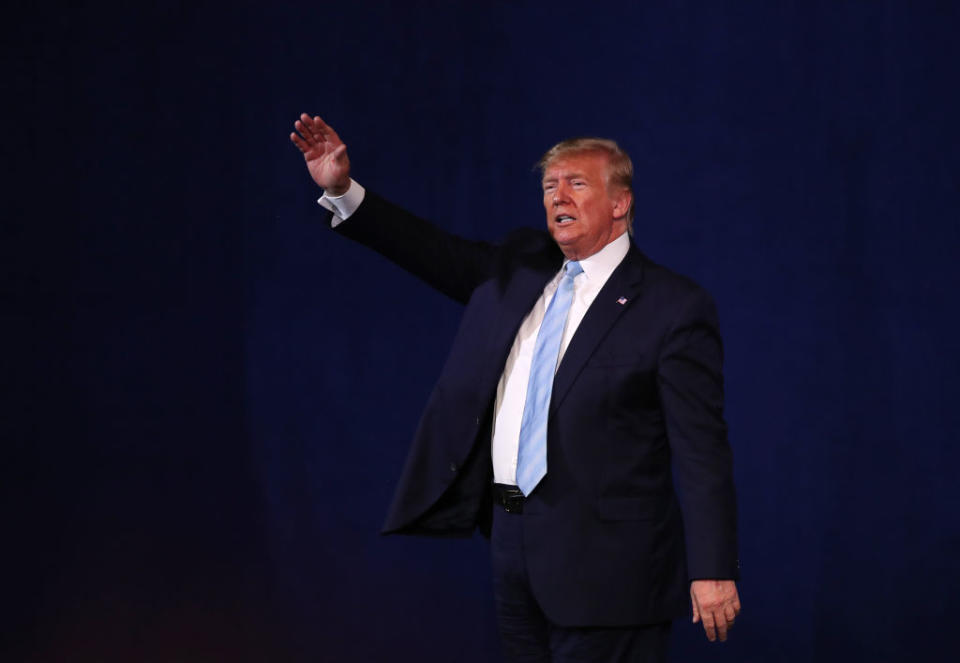
The threat of cyber war ratchets up
In 2010, a then unknown actor managed to disrupt a uranium enrichment plant in Iran by using an unprecedented and incredibly powerful cyber virus.
That virus has since become known as Stuxnet, a computer worm that targets industrial control systems that are used to monitor and control large scale industrial facilities like power plants, dams, waste processing systems and similar operations.
It is now known that the US was behind the attack which sabotaged a nuclear plant and thousands of centrifuges reportedly stopped production as a result.
The cyber weapon was first commissioned under the Bush administration and then again during the Obama years and highlighted the important role of cyber warfare – an increasingly important battleground in the ongoing conflict.
“It is now much more difficult for the United States to play that game,” Prof Blaxland said. “The Iranians have been actively looking to harden their systems since then.”
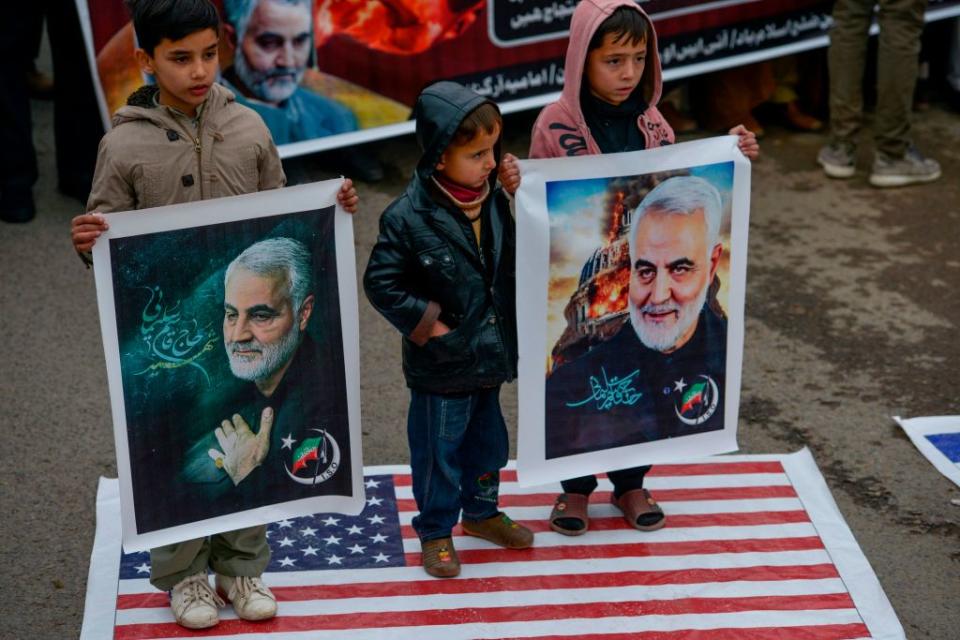
On Sunday, a US federal website was hacked and defaced with images of the Iranian flag and a picture depicting a bloodied Donald Trump being punched in the face. Iranian hackers took credit for the act, saying it was “only a small part of Iran’s cyber ability”.
Cybersecurity firm FireEye said it expects a ramp up in Iranian espionage activities targeting government systems as well as “disruptive and destructive cyber attacks against the private sphere,” the company’s director John Hultquist said in a statement.
In November, Iran’s Telecoms Minister claimed it had foiled a major cyber attack on its infrastructure that was launched by a foreign government.
Earlier in October the US reportedly carried out a secret cyber strike on Iran following September 14 attacks on Saudi oil facilities, which Washington and Riyadh blamed on Tehran.
Iraq votes to expel the US military
The US military presence in the Middle East has been thrown into jeopardy, as Iraq's parliament voted to expel US troops from their country while the leader of Lebanon's Hezbollah group warned the US will 'pay the price' for killing Iranian and Iraq military officials.
Hassan Nasrallah said that US bases, warships and soldiers in the Middle East were all fair targets after the US drone strike that killed General Qassem Soleimani, the architect of many of Iran's regional military campaigns including in Iraq.
"When American troops ...come vertically and return horizontally to the United States of America, then Trump and his administration will know that they lost the region and will lose the elections," Nasrallah said.
Nasrallah spoke from an undisclosed location, and his speech was played on large screens for thousands of Shi'Ite followers in southern Beirut, interrupted by chants of "Death to America!"
His stark warning came as Iraq's parliament voted in favour of a non-binding resolution calling for the expulsion of US troops from their country.
The resolution asks the Iraqi government to end the agreement under which Washington sent forces more than four years ago to help fight the IS extremists.
In a speech in Iraq's parliament, Prime Minister Adel Abdul-Mahdi called for "urgent measures" to remove foreign forces – including the estimated 5,200 US troops.
The United States said it was disappointed in the result.
With AP, Reuters
Do you have a story tip? Email: newsroomau@yahoonews.com.
You can also follow us on Facebook, Instagram and Twitter and download the Yahoo News app from the App Store or Google Play.




